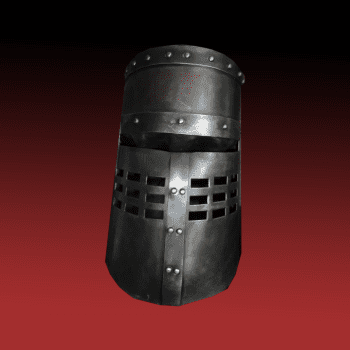 Men holding hands. Love songs to Jesus. Lace doilies on the communion table. At Church for Men, we regularly lampoon the feminization of church culture.
Men holding hands. Love songs to Jesus. Lace doilies on the communion table. At Church for Men, we regularly lampoon the feminization of church culture.
But as I speak around the country, one thing I’m hearing is that the millennial generation of men doesn’t seem too bothered by girly stuff. Men in their 20s don’t conform to strict gender roles the way their fathers and grandfathers did. In fact, many young guys are rejecting stereotypically manly behaviors – dismissing them as silly and sophomoric.
What changed?
In the 1950s, men and women did different things. Men were football players; women were cheerleaders. Boys took shop classes; girls took home economics. Differences between the sexes were enforced – and widely accepted by society.
Men of the 1950s felt a great deal of pressure to “be manly.” Men who failed to do so (or those who adopted womanly behaviors) were ostracized by society.
But in our post-feminist era gender barriers have largely been obliterated. Women have been doing “manly things” without shame for about four decades. And slowly, millennial men are starting to put aside their fears when it comes to “womanly things.”
Male culture is weakening. Traditionally masculine pursuits such as hunting and fishing have been on the decline for decades. So are some male-oriented sports such as golf. All-male organizations are getting harder to find (many have been gender-neutralized) and their membership is declining.
So are today’s young men less concerned with being perceived as masculine? It seems to depend on the group they affiliate with.
Just for fun, I’ve divided young men into four very general groups: Camo culture, Conflict culture, Computer culture and Coffee culture. Here’s a description of each one, along with the men who fall into them:
- Camo culture: men who come alive outdoors. They love to hunt and fish. They often work blue-collar jobs.
- Conflict culture: competitive men who play sports and serve in the military. Also men who join gangs and engage in antisocial or illegal behaviors.
- Computer culture: men who love technology. They are into their iPads and smartphones.
- Coffee culture: men who thrive on great thoughts and deep conversation. They often appreciate music and the arts.
Now, I’m fully aware that most men straddle these definitions. I know computer guys who live to go fishing. I have a camo culture friend who reads and writes poetry. As I said, these are very general groupings.
But viewing each group in isolation, certain tendencies appear. Generally speaking, Camo and Conflict-culture guys hew toward more traditionally masculine roles. They seem more concerned with projecting a manly image to the world.
Computer and Coffee-culture guys seem much less concerned about their man-cred. They see the traditional trappings of manhood as silly or threatening. They are more willing to embrace behaviors that have been perceived as feminine.
Because society no longer enforces strict gender roles, more men are “coming out” as computer and coffee culture guys. They no longer feel the need to be artificially macho.
As a result, we perceive a shift in manliness. I’m not sure the ranks of computer and coffee culture men are swelling; these men were always among us, but are now freer to be who they are.
* * * * *
Now, how is this playing out in the church? I was speaking to a group of pastors last month about the feminization of church culture, when one of them said, “David, a lot of the things you are saying don’t apply to the young men in my congregation. They couldn’t care less about being manly. They’re not into hunting or sports or any of that stuff. They seem content to sit in cafes, surf the Web, play music and knit their own hats.”
Why do so many church guys fit this profile? Maybe it’s the way we raise them in the faith.
The traditional Sunday school system, with its emphasis on reading aloud, memorization, arts-and-crafts and sitting still, screens out wiggly, high-testosterone boys. By the age of ten many young men realize they just aren’t cut out for church.
Then youth group comes along to finish the job. Student ministry is quickly evolving into a music-centric experience. Youth stand in a darkened room and sing love songs to Jesus, led by a praise band of their peers. Music can occupy up to half of the meeting. Kinetic learning, games and motion are out – study, talk and singing are in. This system pushes out the camo and conflict culture guys – while attracting the more verbal and artistic boys.
By their senior year, girls are 14 percent more likely to have participated in a youth group. And young women are 21 percent more likely to have stayed involved in youth group all four years of high school. The men who remain at age 18 are those who could adapt to the feminized culture of church, Sunday school and youth group.
So yes, millennial men are less “manly” as the term is stereotypically defined. And the phenomenon is even more prevalent among churchgoing millennial men, because they’ve learned to thrive in an environment dominated by women and their values.
Simply put, the modern church system attracts a lot of computer and coffee culture guys, and relatively few camo and conflict culture guys. Modern culture is making it safe for men to be less outwardly manly. And church culture gathers men who are less concerned with projecting a masculine image.
Again, I’m painting with a very broad brush – but I hope these observations are helpful. What’s needed, then, from an evangelistic point of view, are churches and ministries that target Camo and Conflict culture men. And from a discipleship view, we need to tailor our methods more toward Computer and Coffee culture men – because that’s who we’ve got.
So what do you think? Are millennial men less “manly” than prior generations? And what about the young men in your church? How should these trends affect our churches and discipleship regimens? Please leave a comment below, or join the conversation on our Facebook page.















